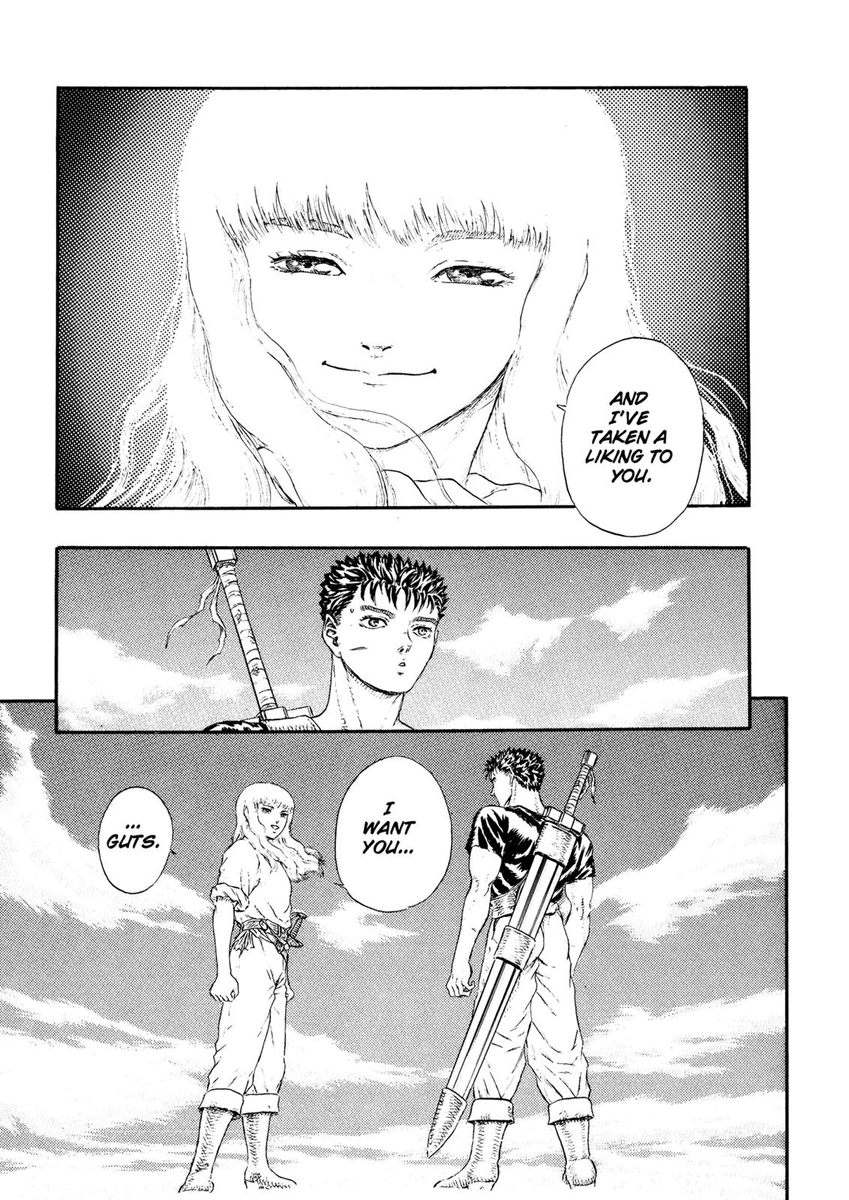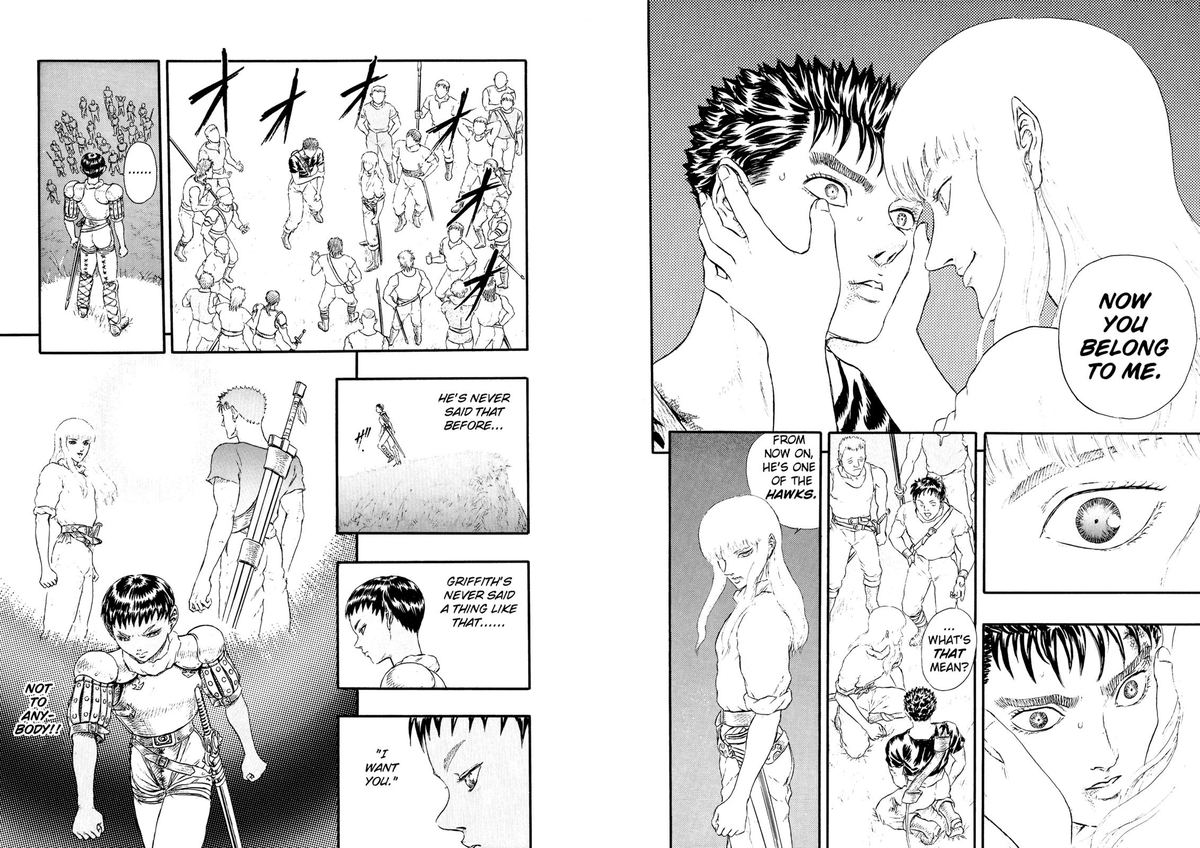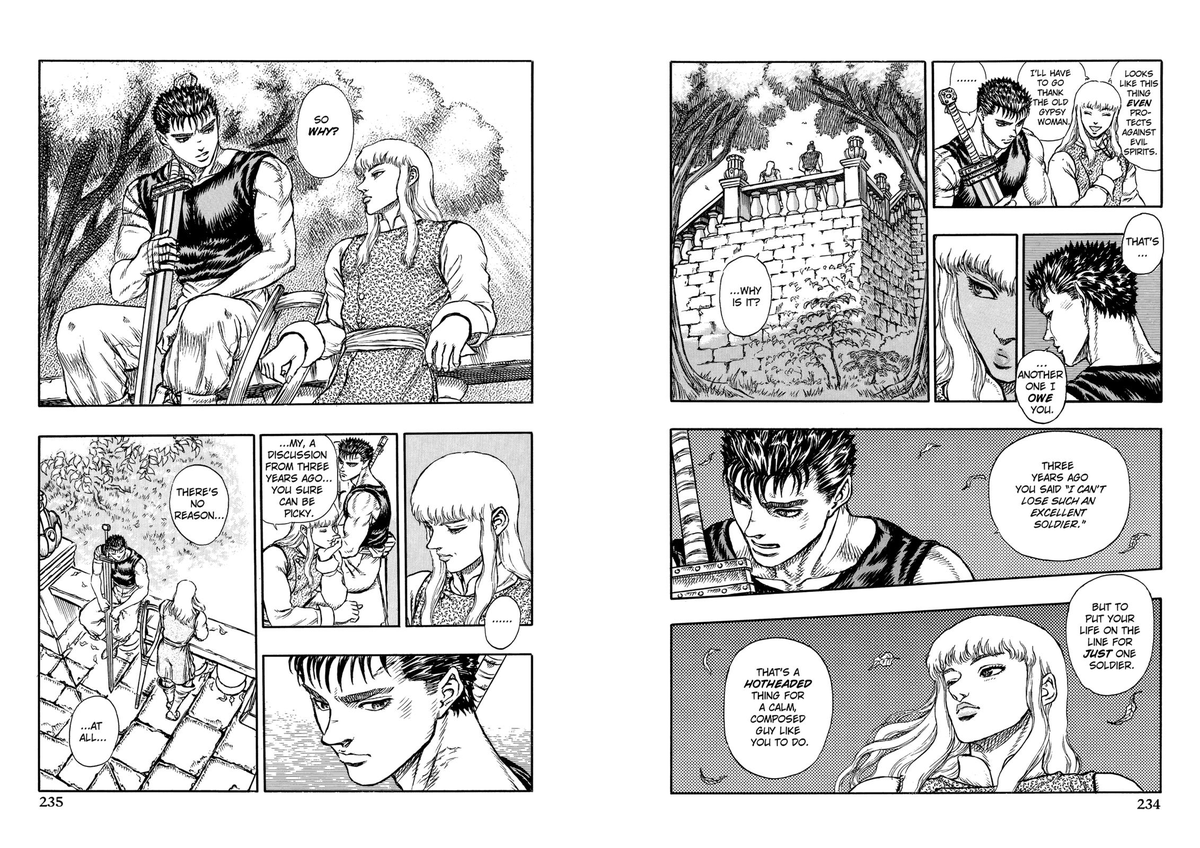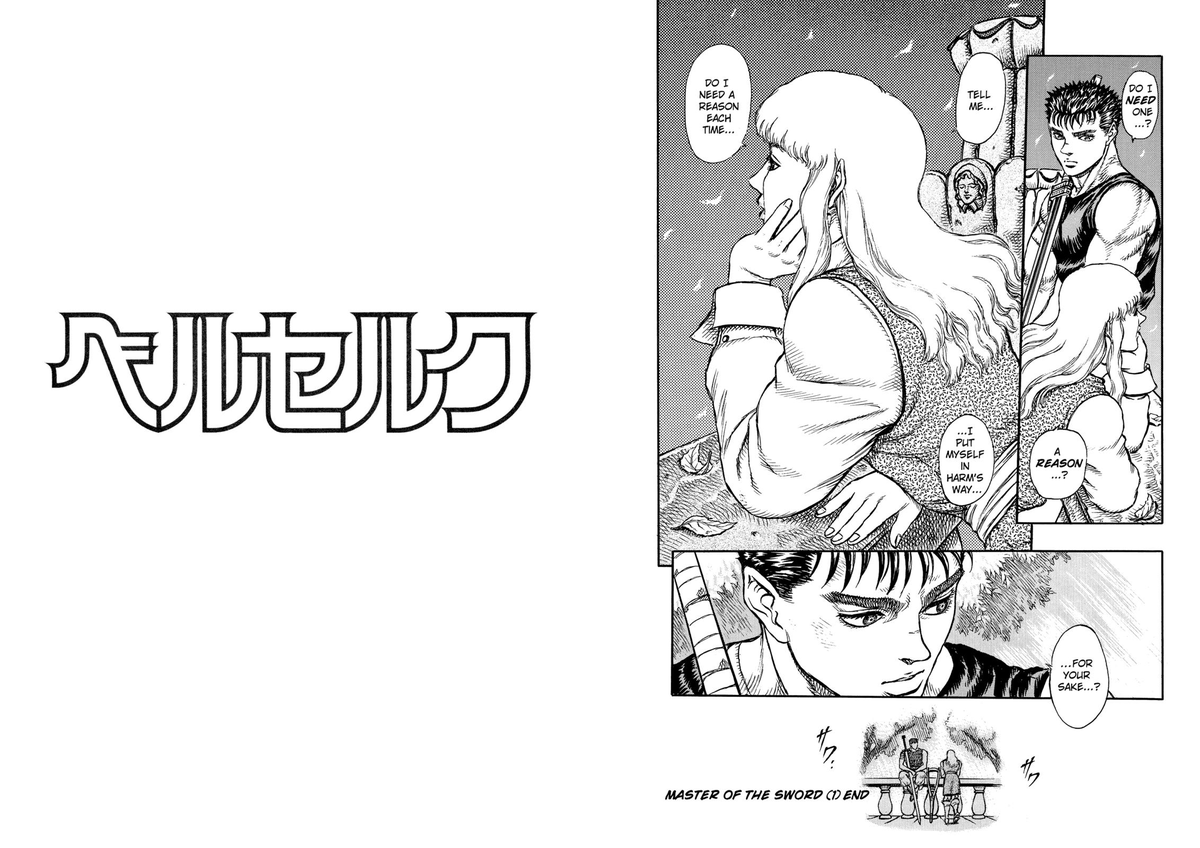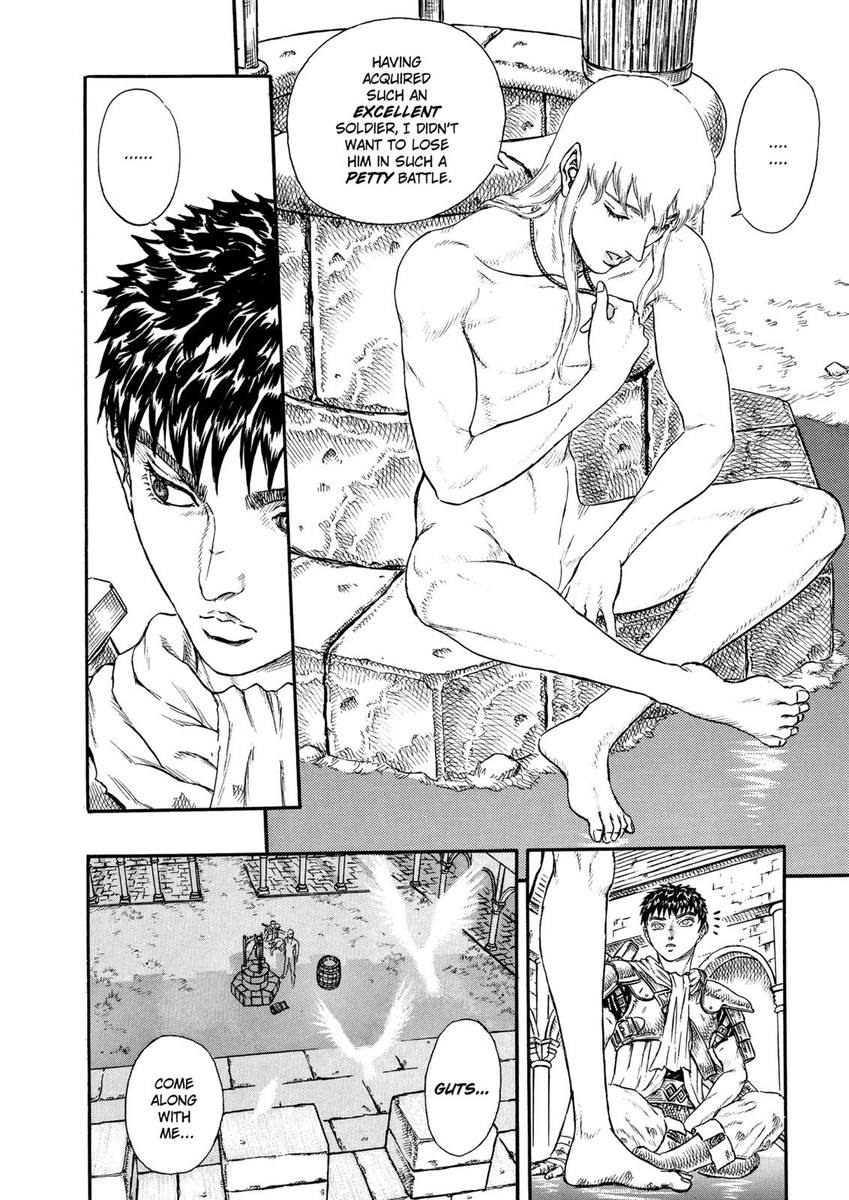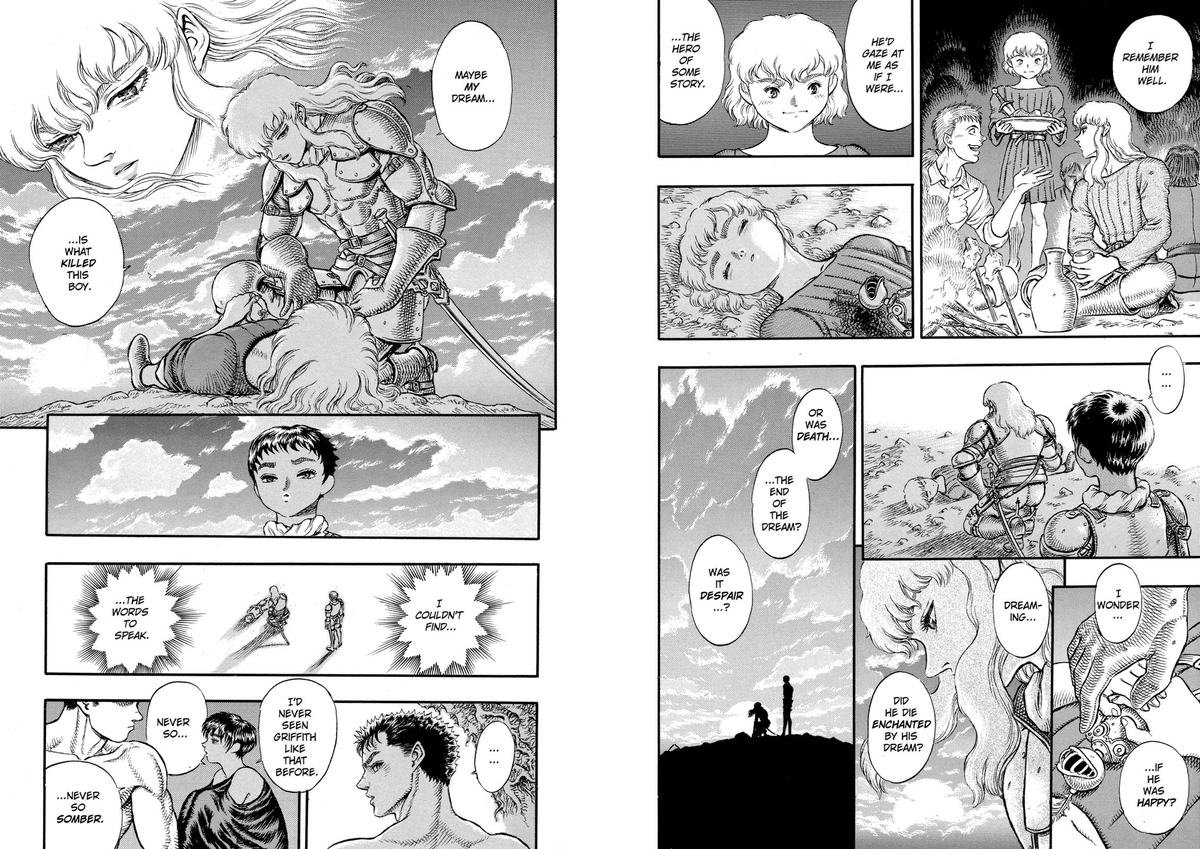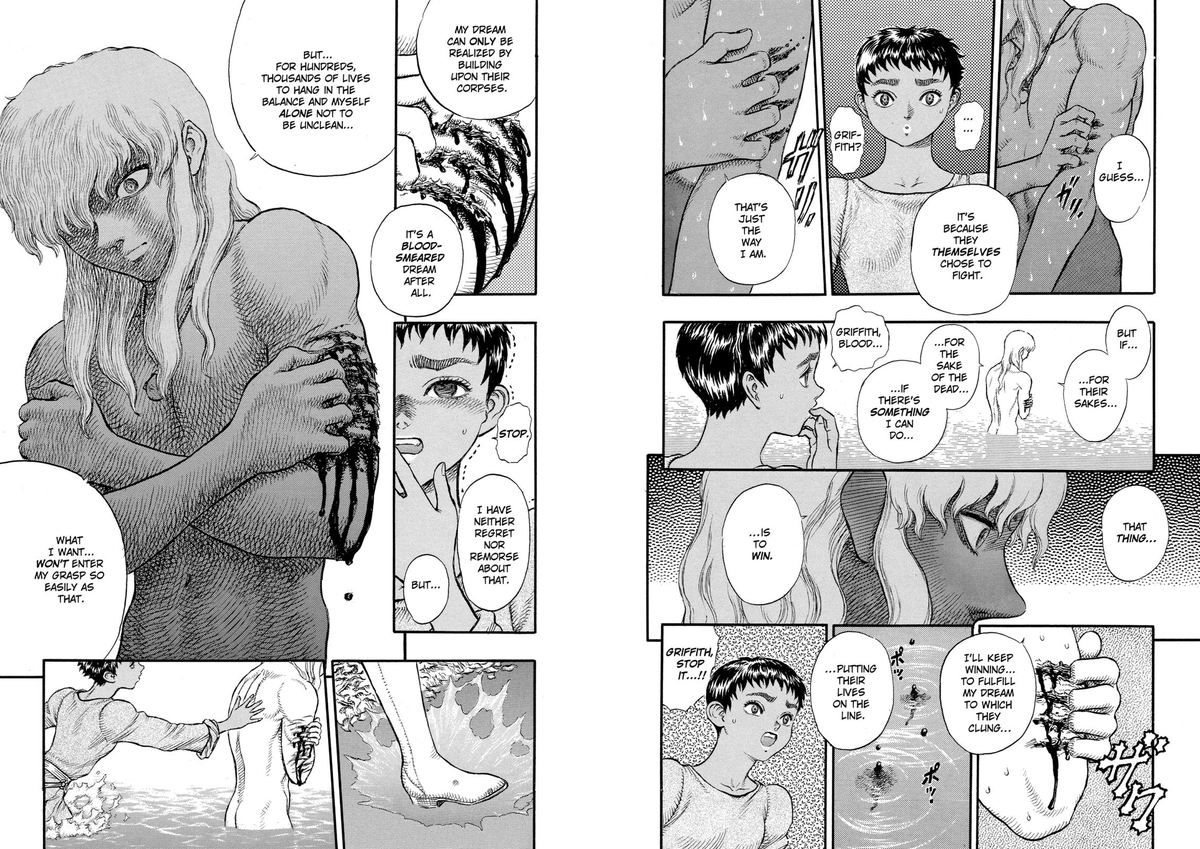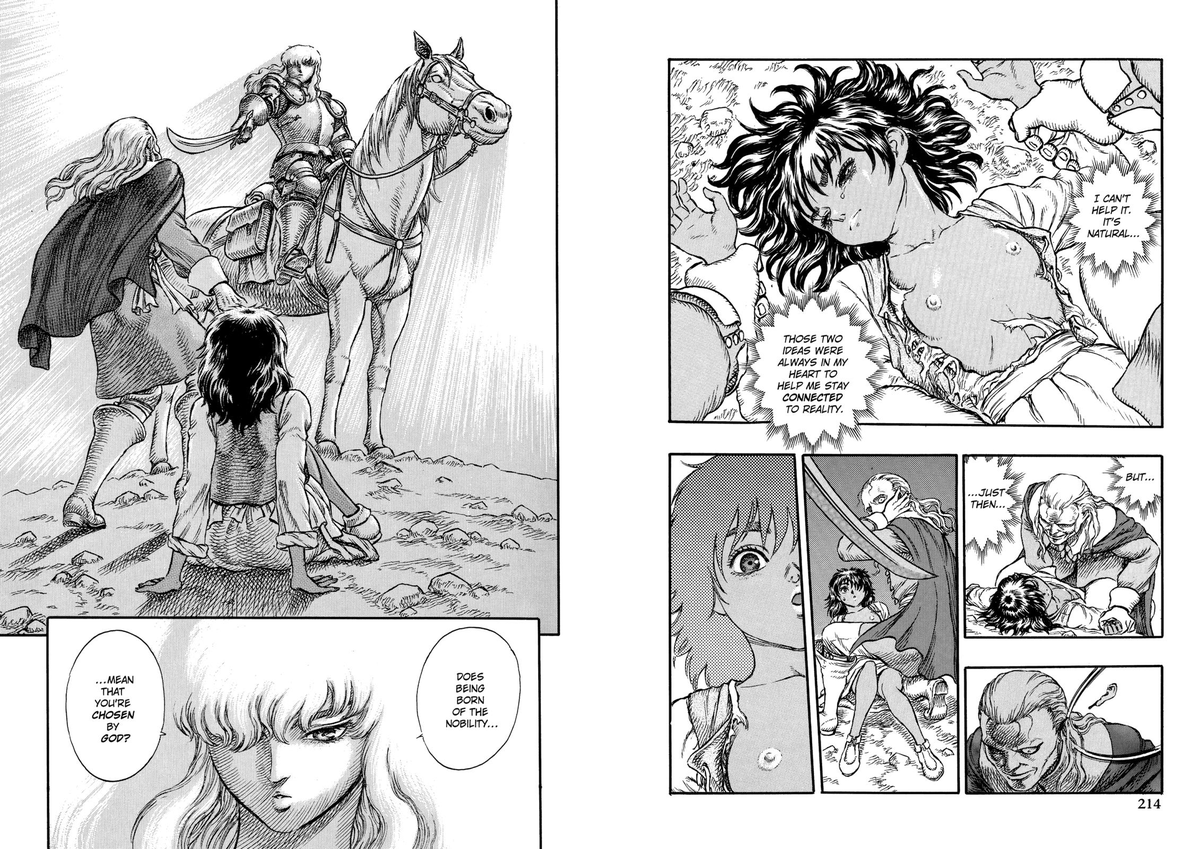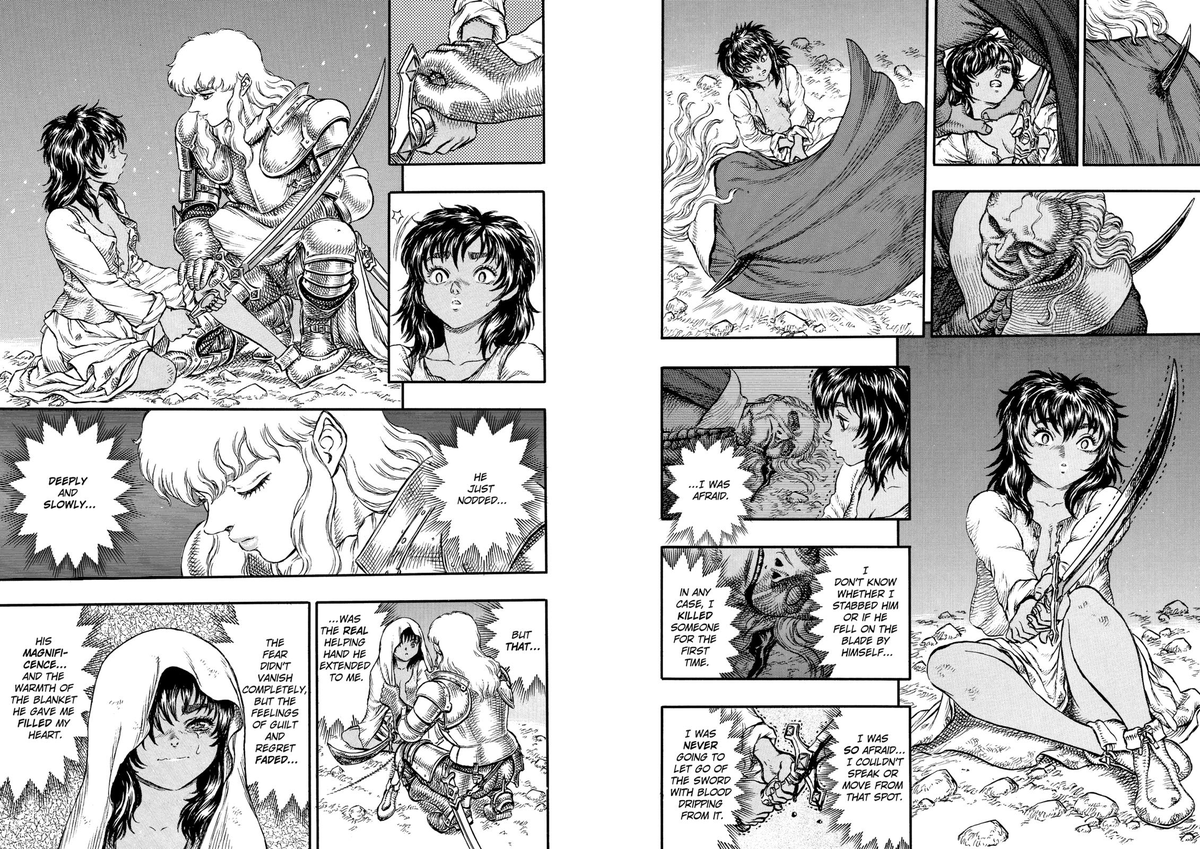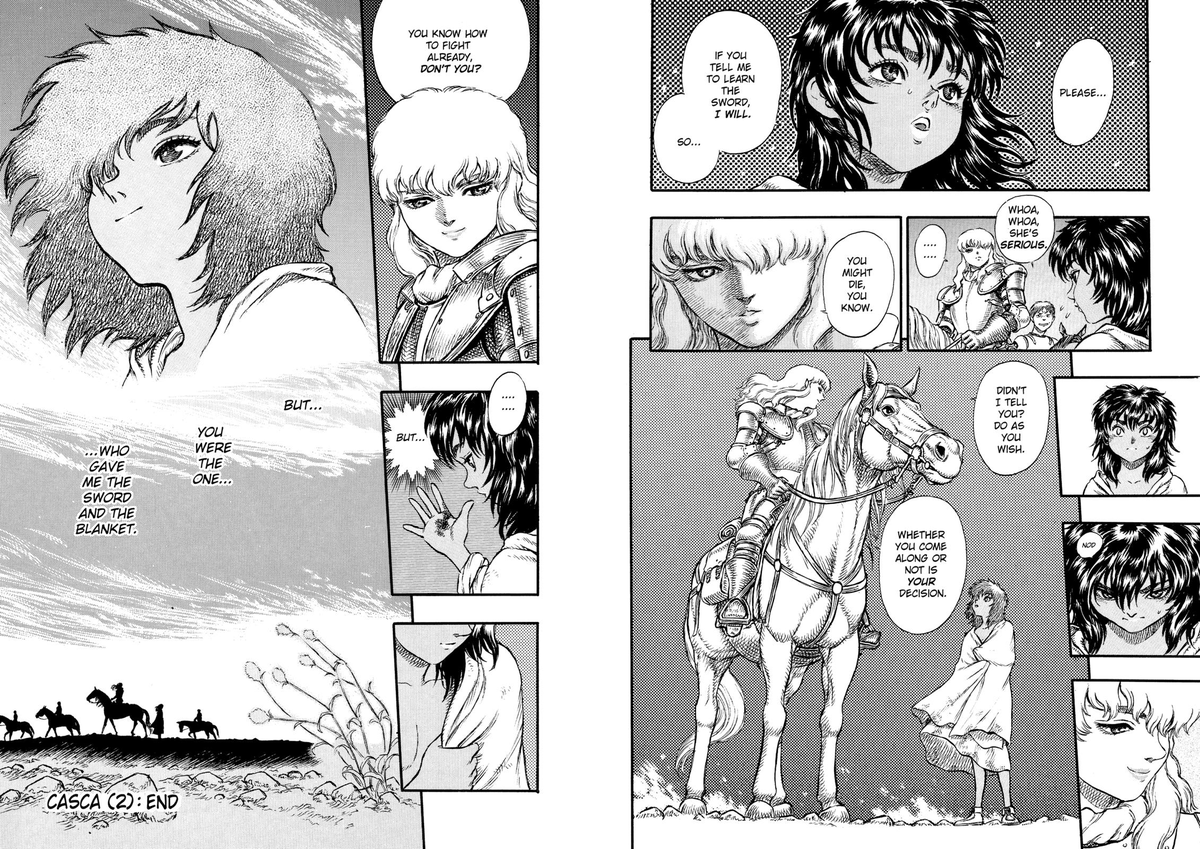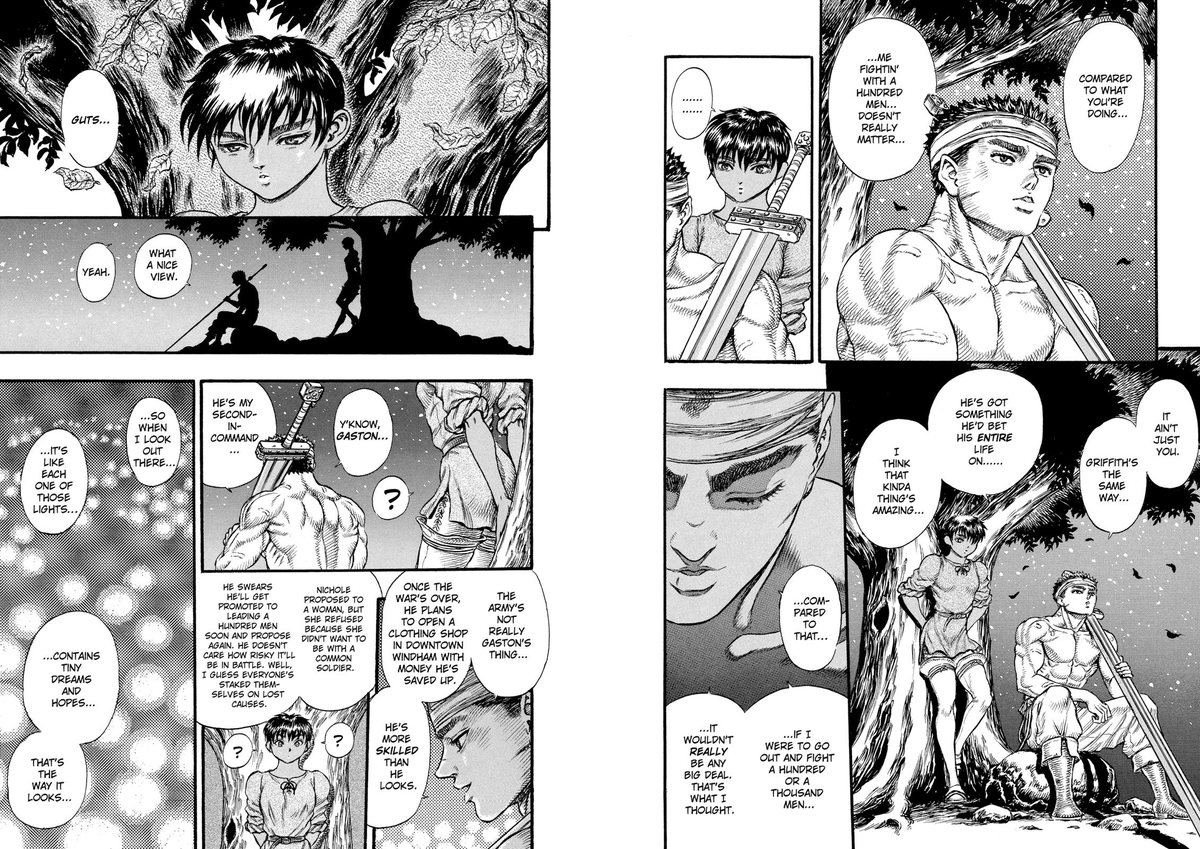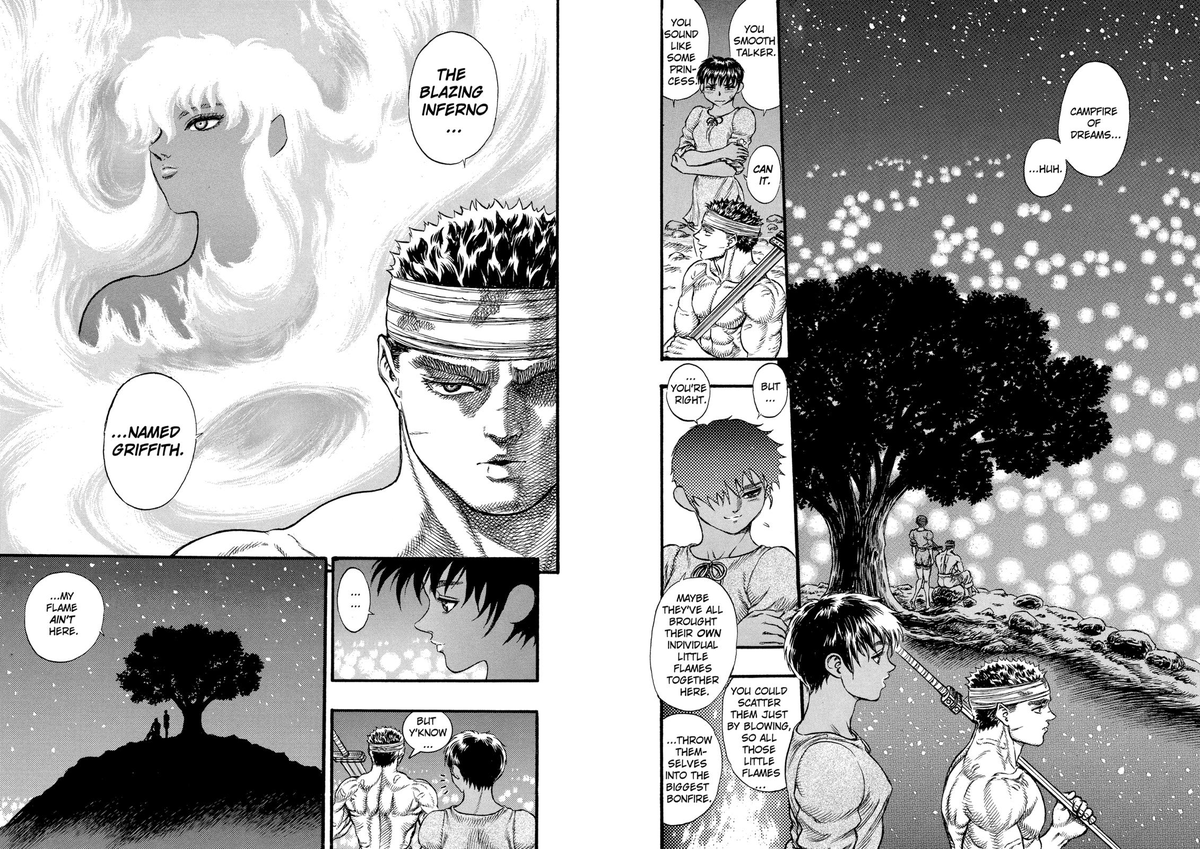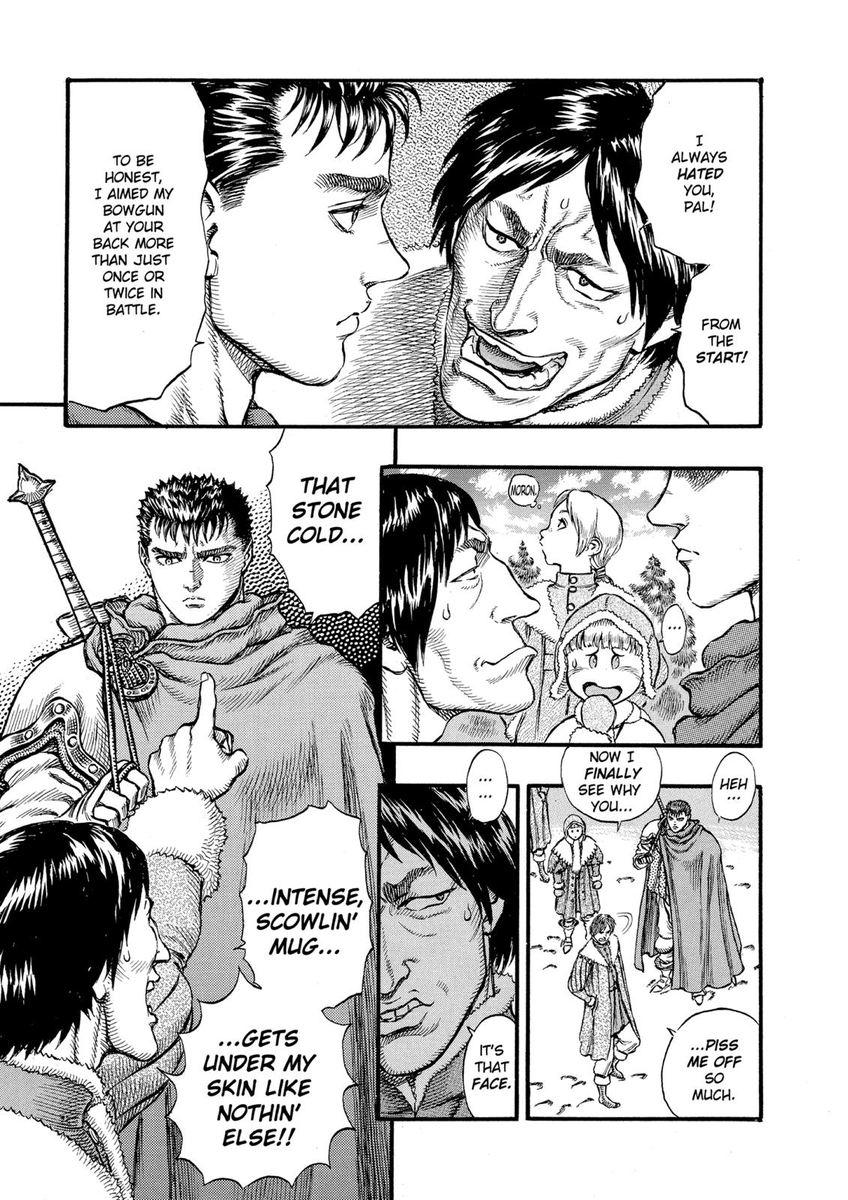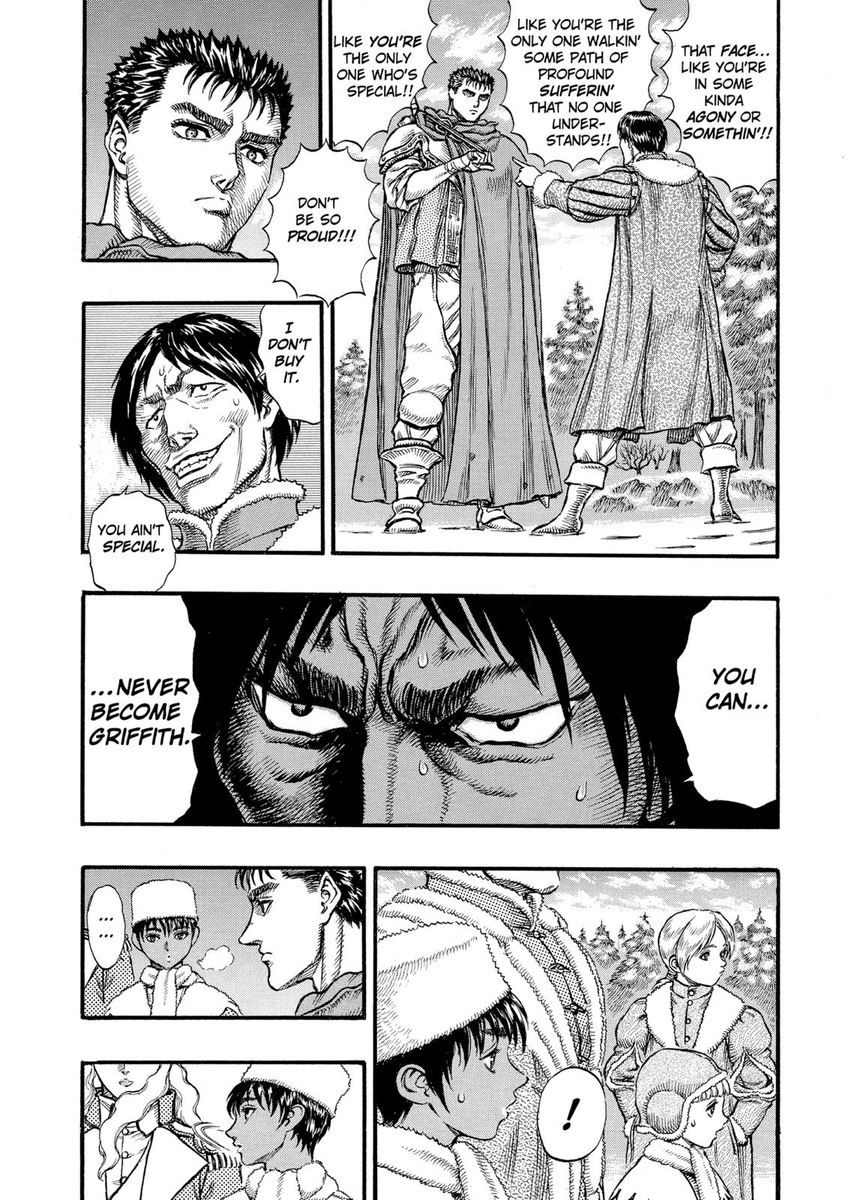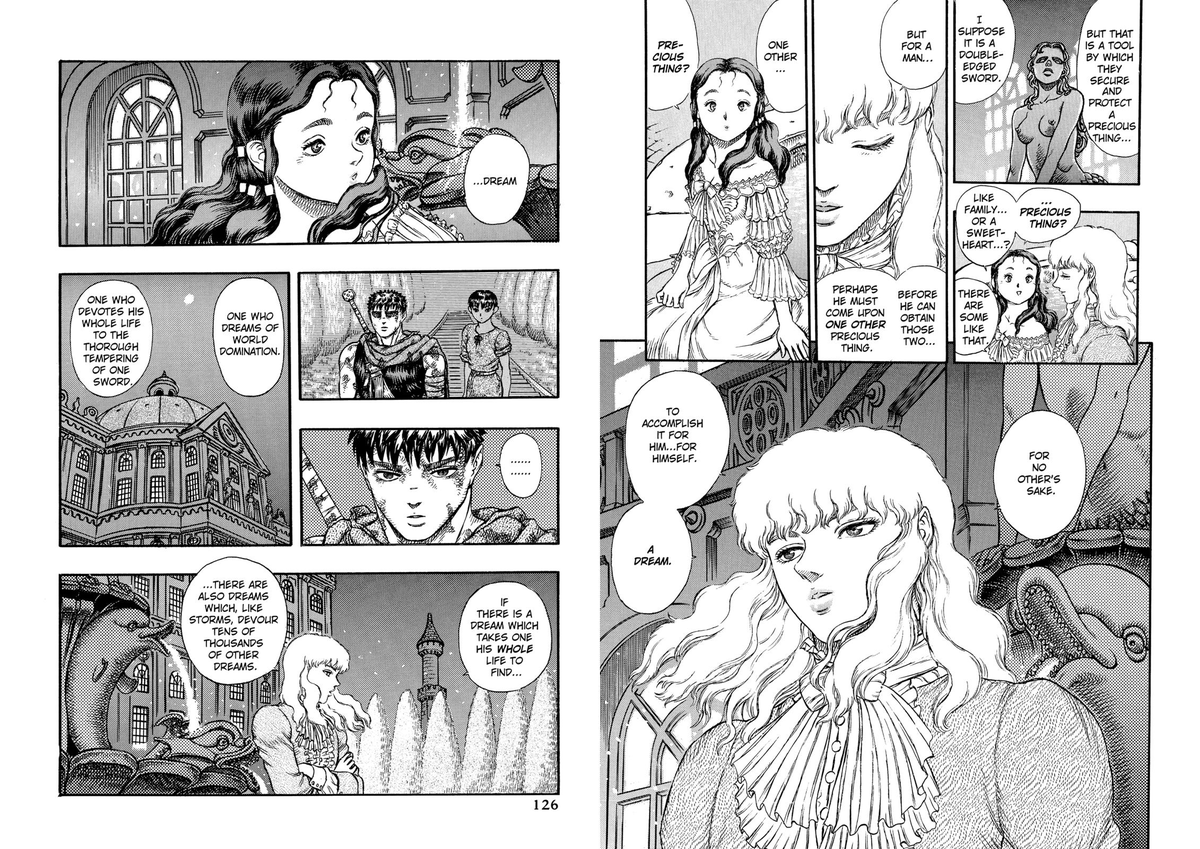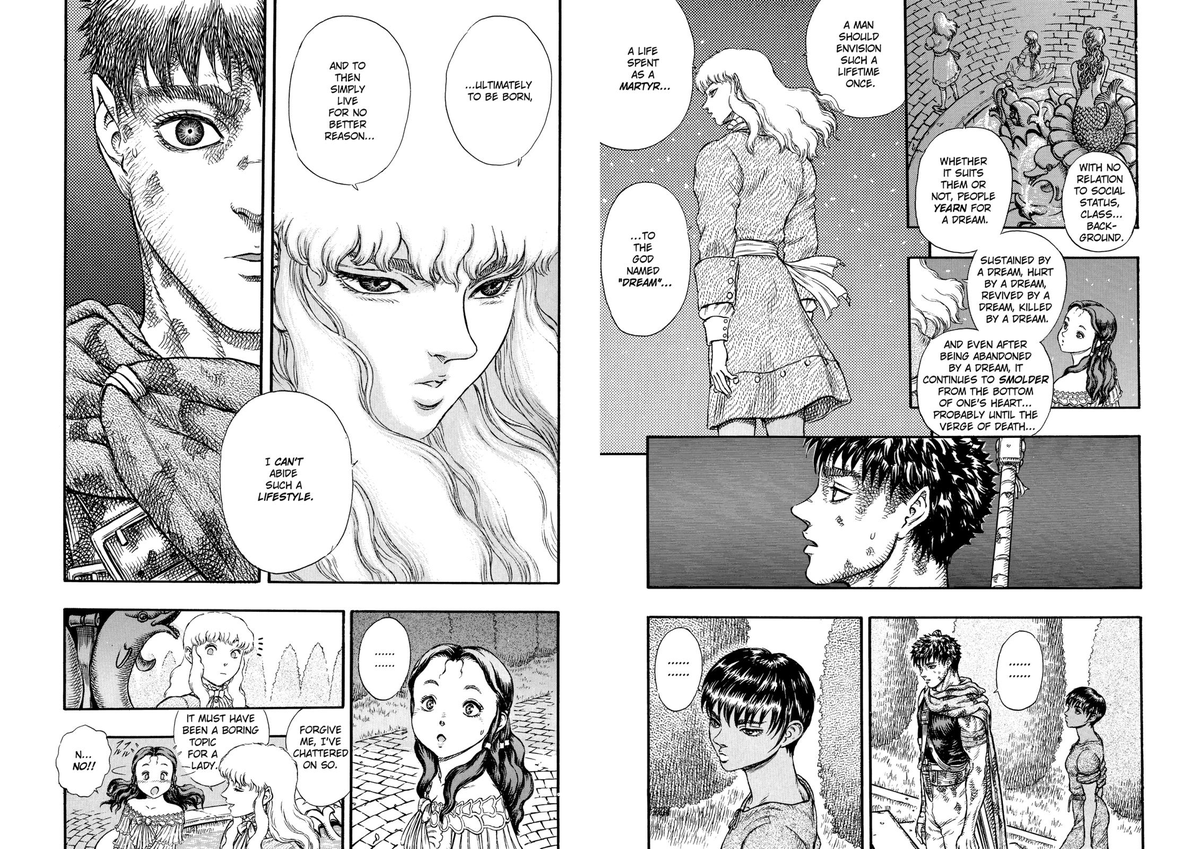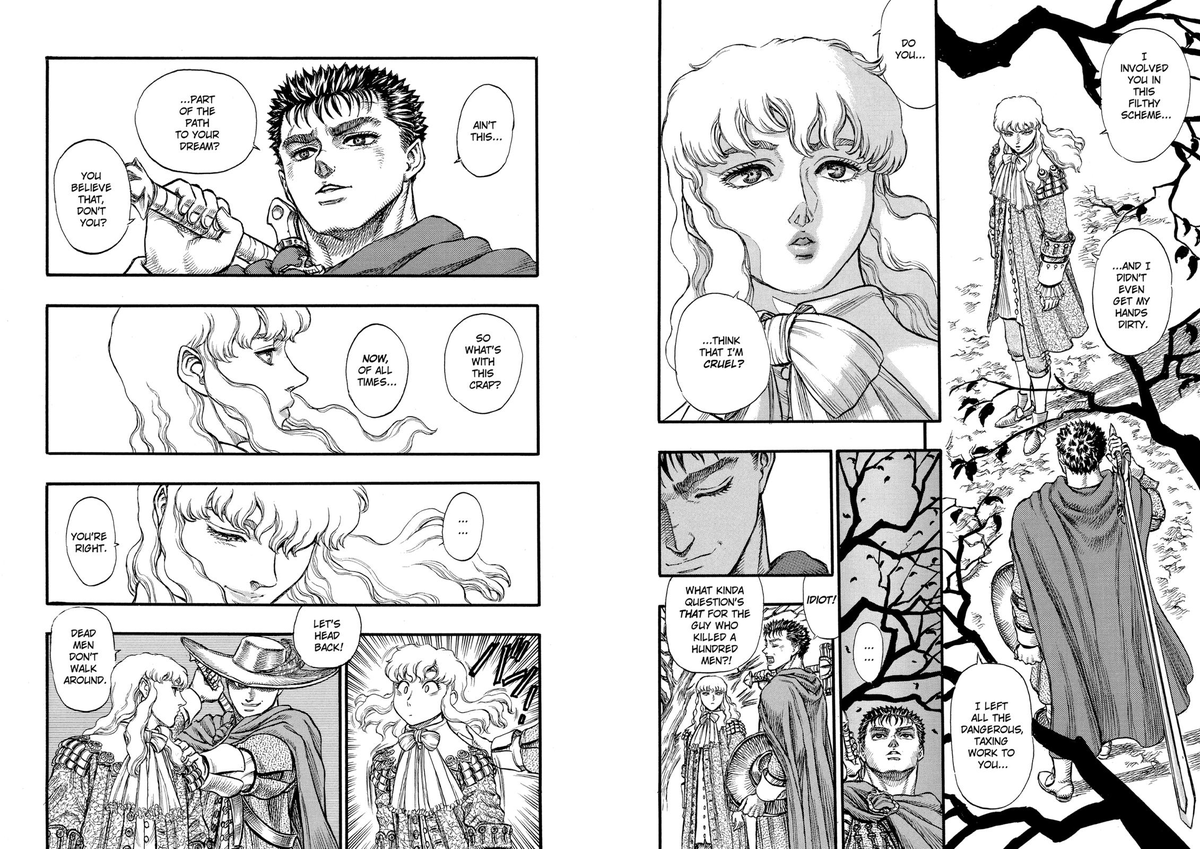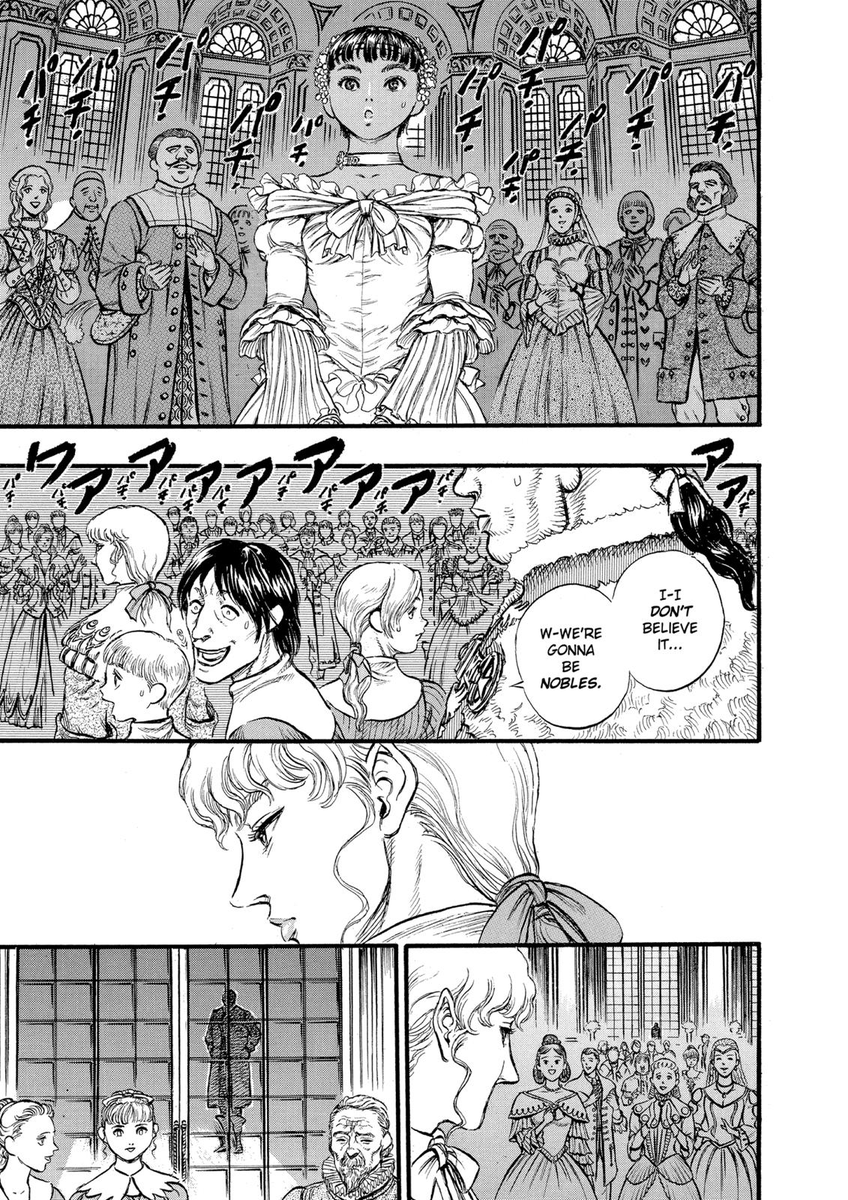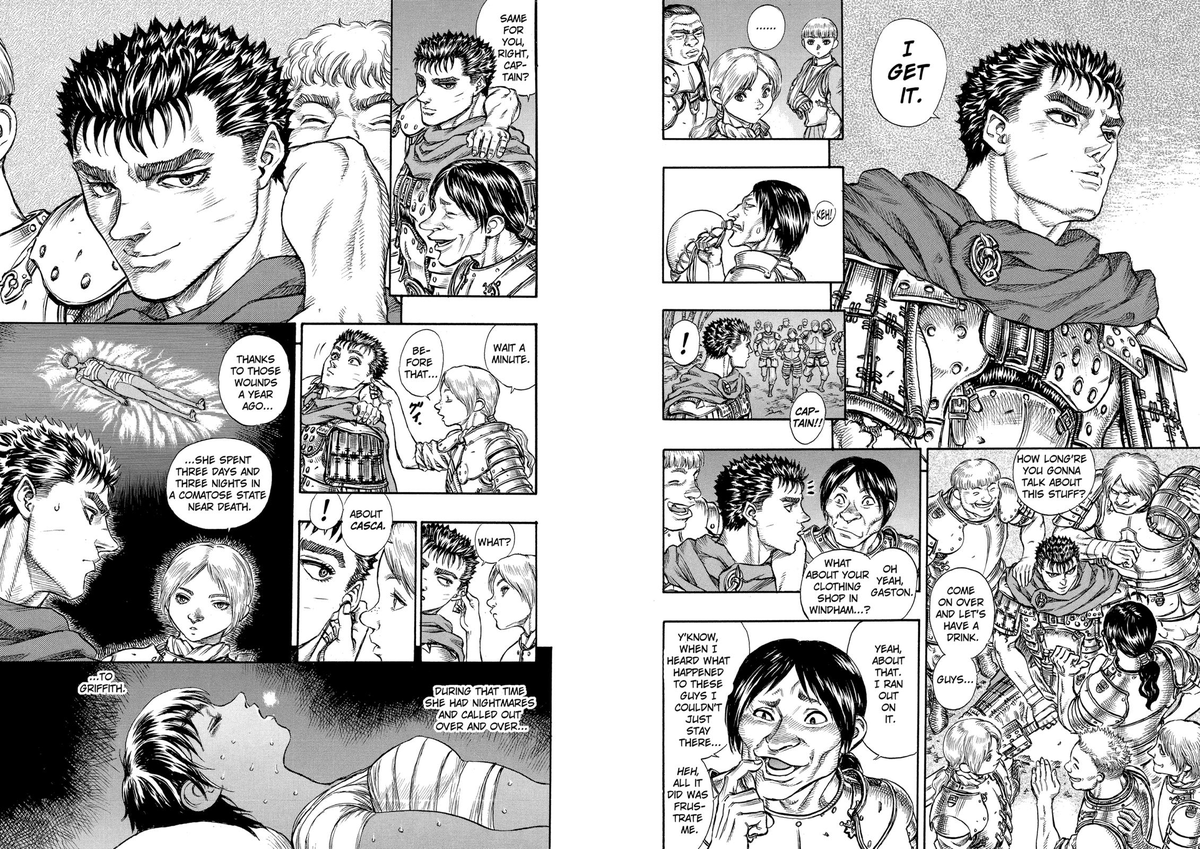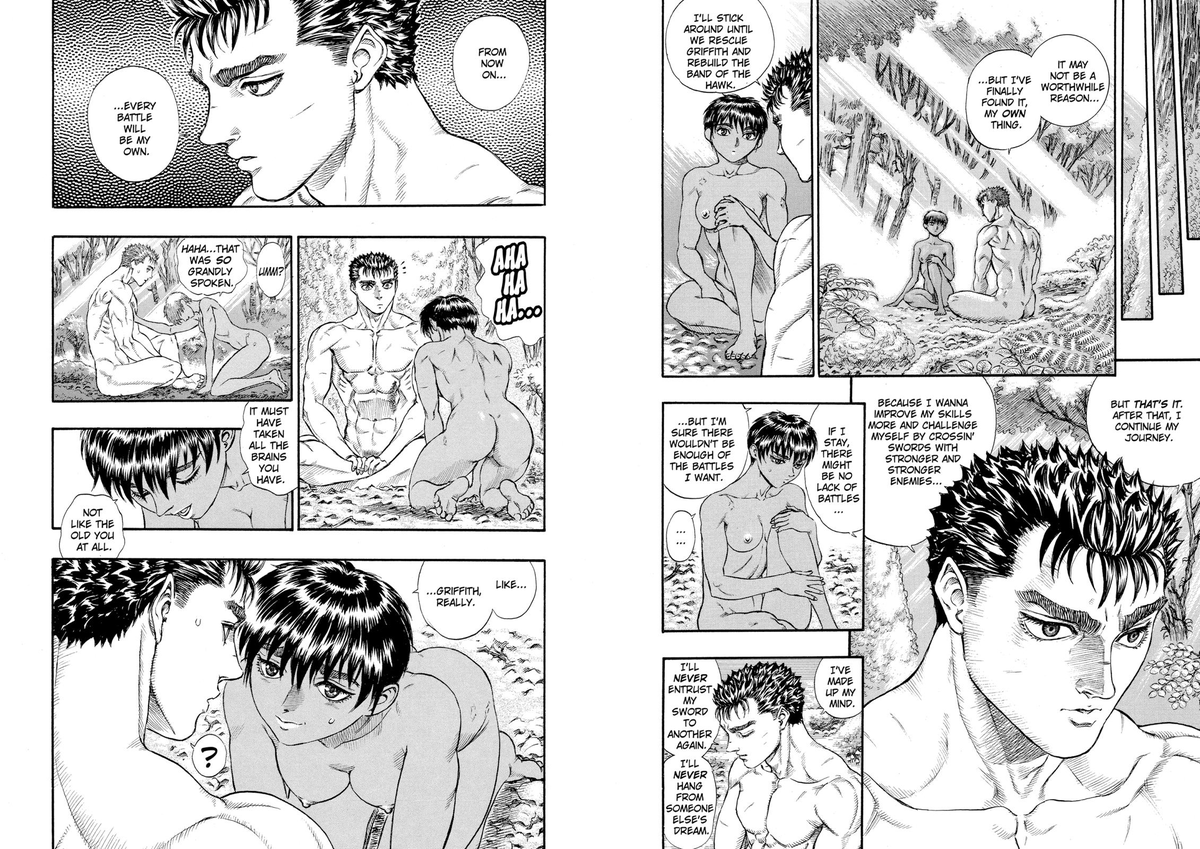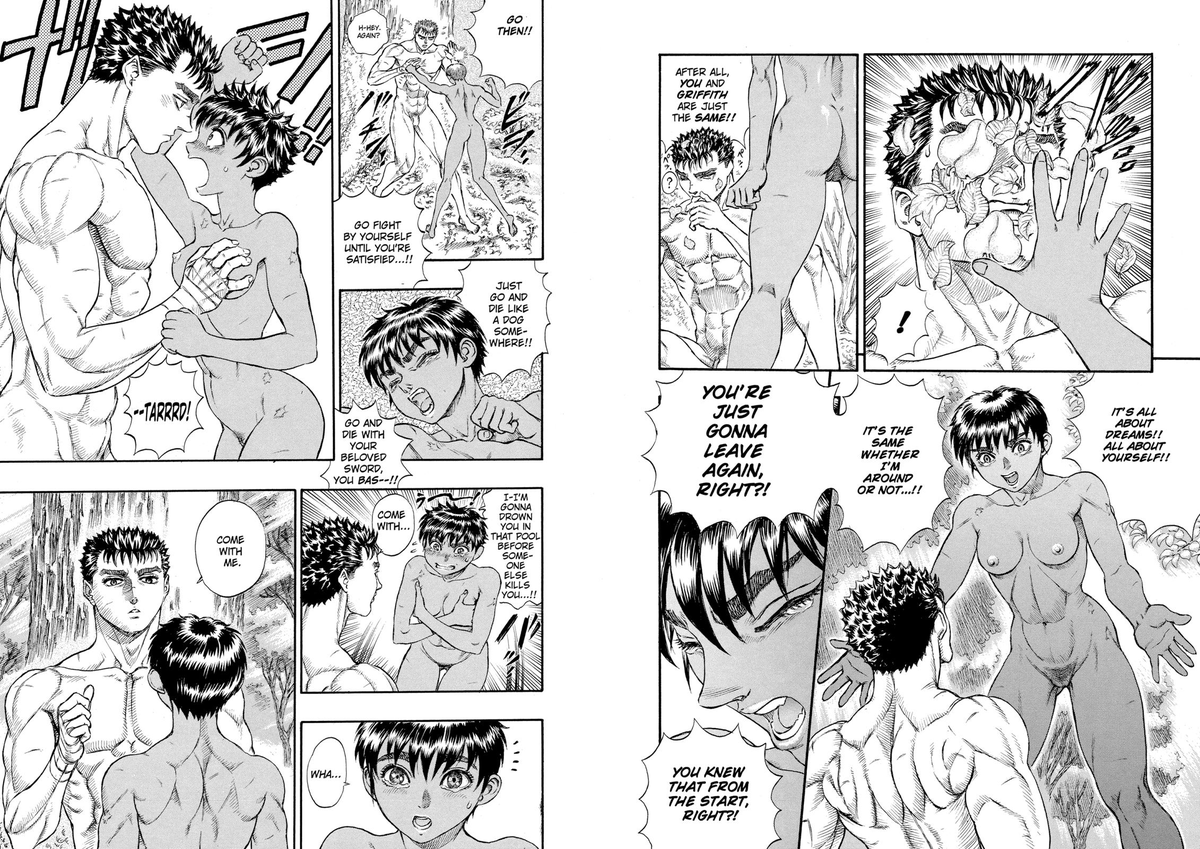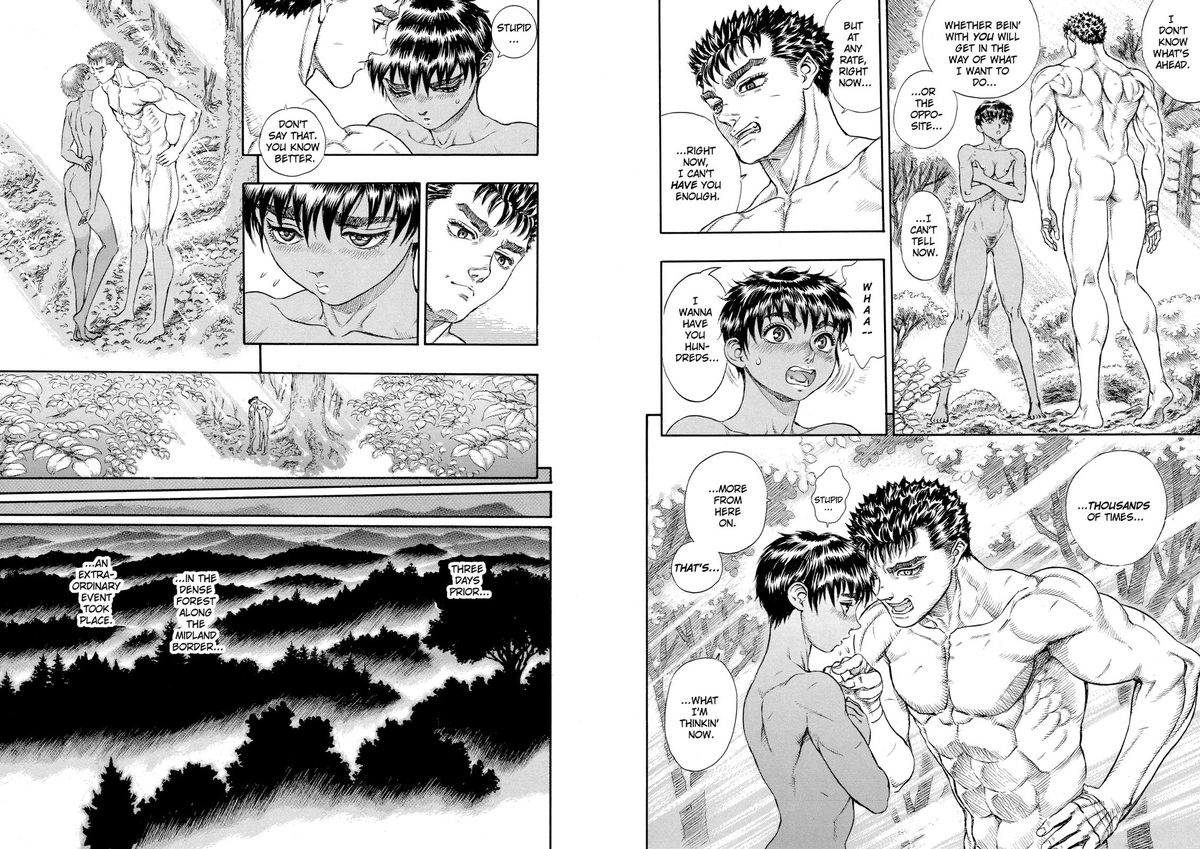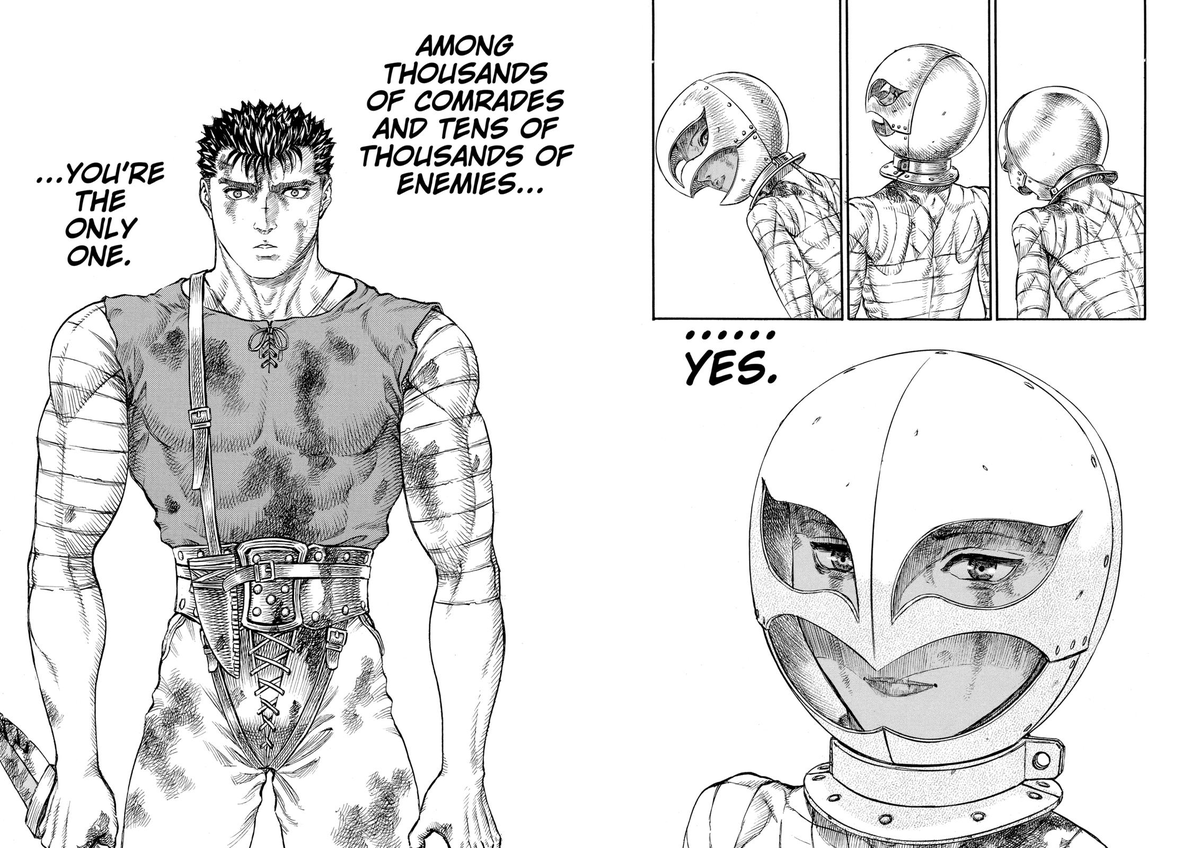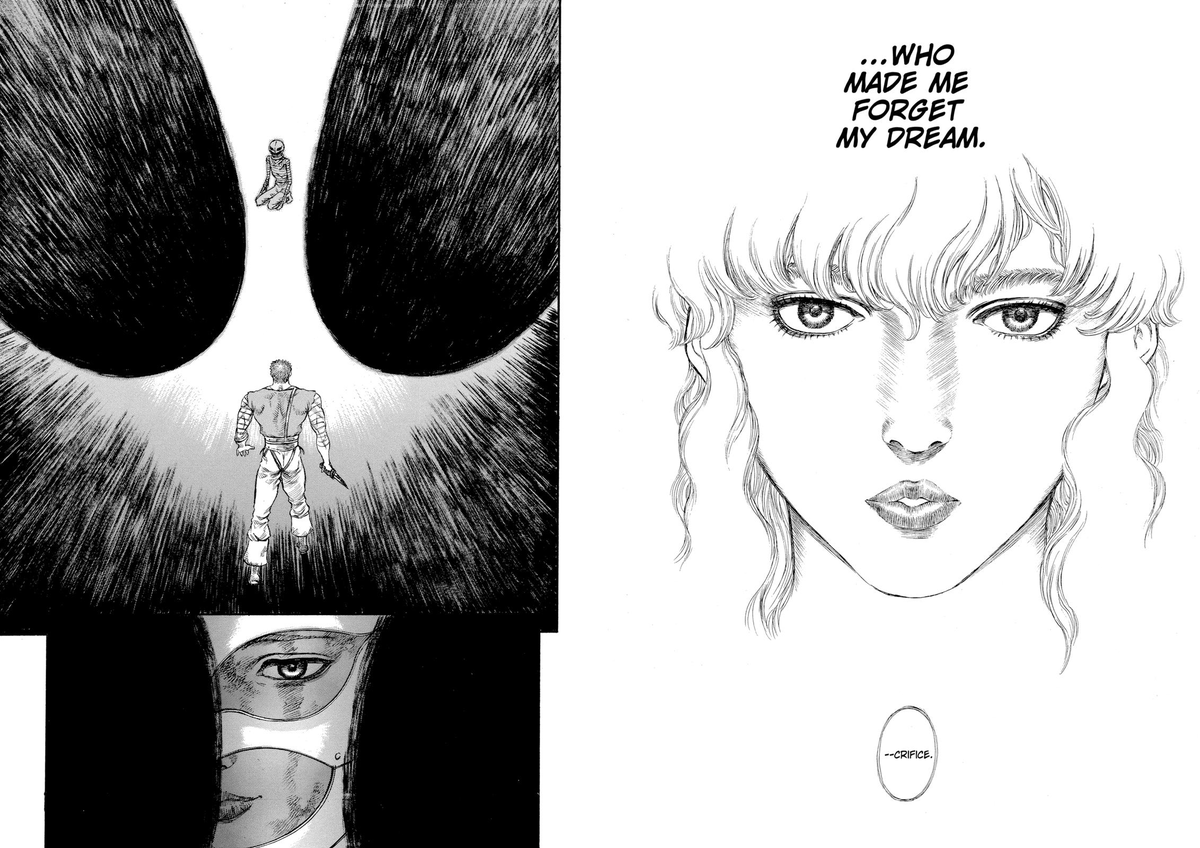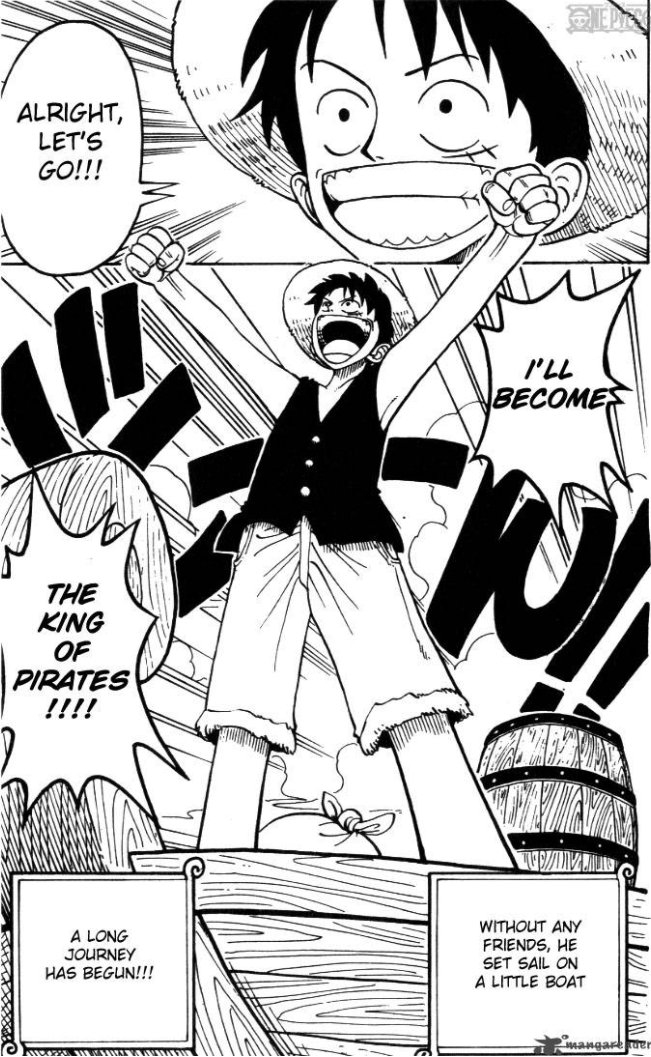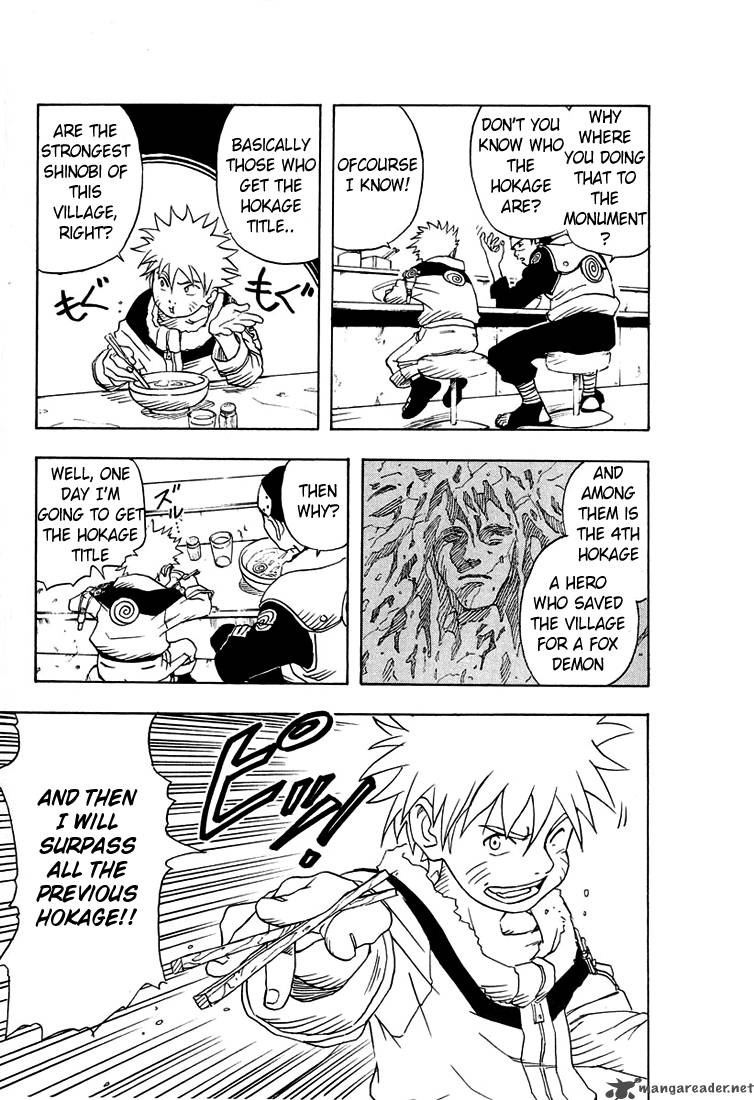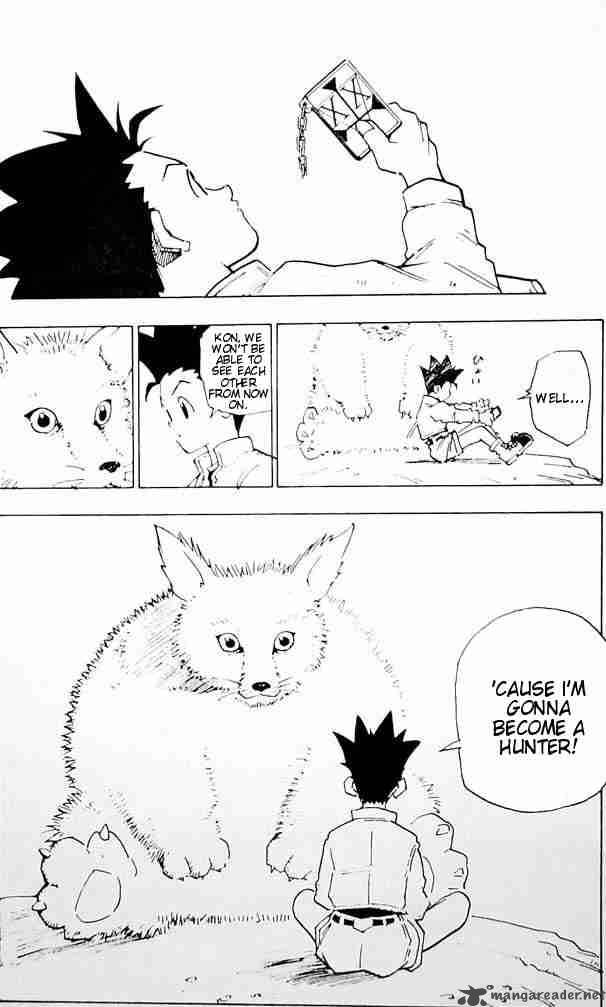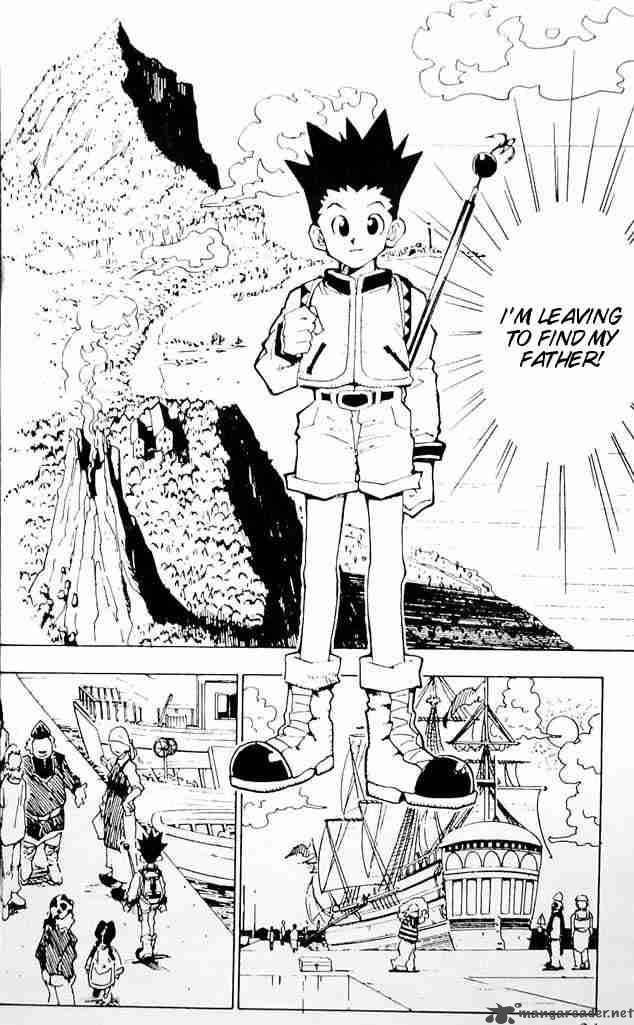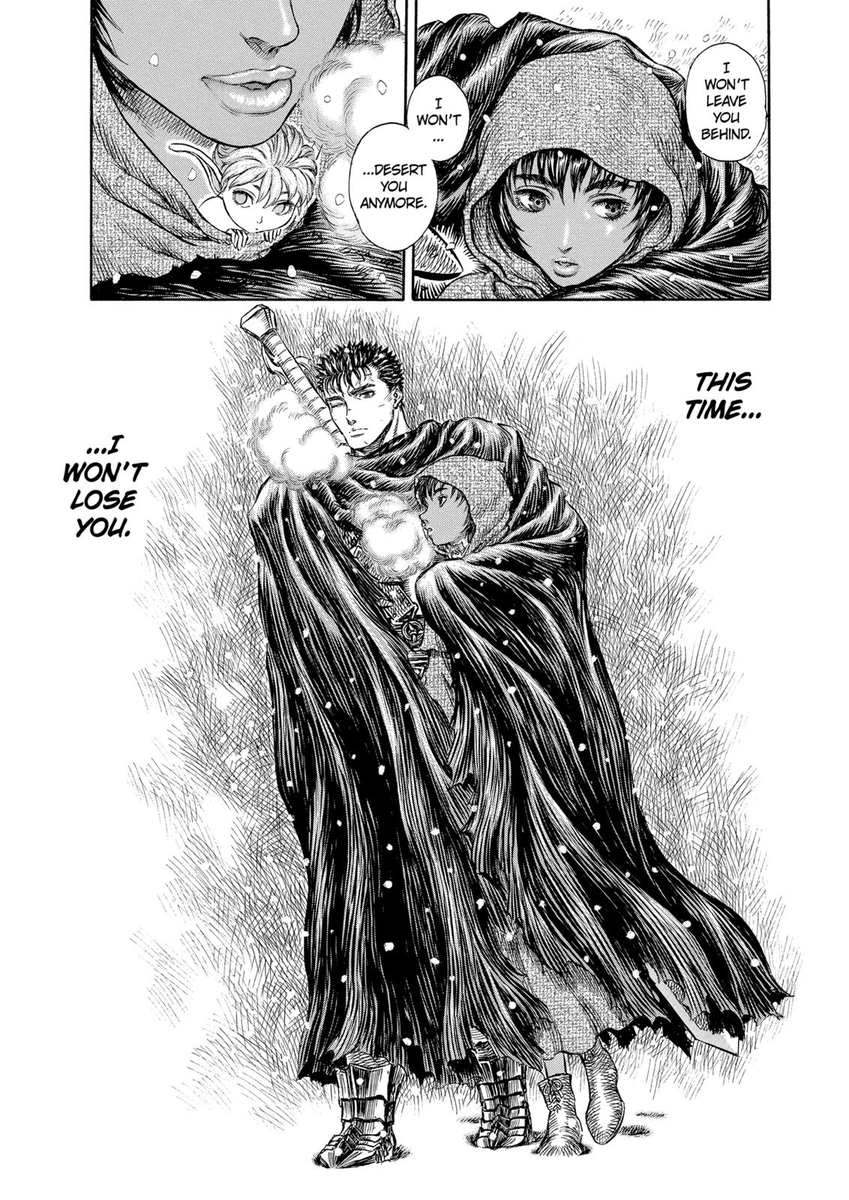Quick short (not so short nor quick in the end...) thread on Griffith's evolution as the leader of the Band of the Hawk and the importance of dreams in the Golden Age of Berserk.
(inspired by @_JackPBrown latest article)
https://twitter.com/_JackPBrown/status/1349096706449809409?s=20
(inspired by @_JackPBrown latest article)
https://twitter.com/_JackPBrown/status/1349096706449809409?s=20
Griffith is first introduced as a strong, beautiful fighter with an eerie childlike smile.
He talked like one too, not hiding to Guts that he wanted him. And he showed immediatly after that he was ready to fight to obtain what he wanted with a frightening personality change.
He talked like one too, not hiding to Guts that he wanted him. And he showed immediatly after that he was ready to fight to obtain what he wanted with a frightening personality change.
This duality in Griffith is the core of his character design in the Golden Age and is immediatly pointed out by Judeau, though the reason why is still unknown at that point.
In the same chapter Griffith plays with Guts before announcing his dream and the project he has for him.
In the same chapter Griffith plays with Guts before announcing his dream and the project he has for him.
The difference in attitude is here again, and the change is even more strikling. But now we have a key to better understand the character.
Griffith has kept his childhood dream. He doesn't want to get his own kingdom to create a better society, he is motivated by pure desire.
Griffith has kept his childhood dream. He doesn't want to get his own kingdom to create a better society, he is motivated by pure desire.
His childlike demeanor makes sense now, as Griffith has never yielded his ambitions in front of the incredibly hard hurdles the world had placed against him.
But to make it a reality he also needs to be able to organize and approach his challenges in a realistic way.
But to make it a reality he also needs to be able to organize and approach his challenges in a realistic way.
Those two personnalities are absolutely irreconciliable :
The "child" in Griffifth plays with the Band of the Hawk like friends and doesn't hesitate to put himself (and his dream) in danger for them whereas the cold, possessive and egoist Griffith (Femto) only see useful troops.
The "child" in Griffifth plays with the Band of the Hawk like friends and doesn't hesitate to put himself (and his dream) in danger for them whereas the cold, possessive and egoist Griffith (Femto) only see useful troops.
While it is easy to see that the "child" is a personality Griffith inherited from his childhood, the origin of Femto is more obscure until the Casca flashback.
This younger Griffith is more troubled, recognizing the deaths that his dream provoked.
This younger Griffith is more troubled, recognizing the deaths that his dream provoked.
He goes as far as to prostitute himself to minimize those deaths.
This is also where we see the way Griffith frames the engagement of his soldiers in order to reconcile his love for them with their sacrifice for his personal ambition.
This is also where we see the way Griffith frames the engagement of his soldiers in order to reconcile his love for them with their sacrifice for his personal ambition.
He doesn't see himself as responsible because "they themselves chose to fight".
Of course he doesn't entirely believe it, and that's why he considers their deaths as additional pressure for him to realize his dream.
This framing is reflected in the way Casca joins the band.
Of course he doesn't entirely believe it, and that's why he considers their deaths as additional pressure for him to realize his dream.
This framing is reflected in the way Casca joins the band.
Griffith gives her a sword and a blanket but insists on the importance of her free will and that ultimately Casca does as she wishes.
We already have the premise of the Eclipse as we understand that Griffith has engaged in a vicious circle where the deaths for his dream act as..
We already have the premise of the Eclipse as we understand that Griffith has engaged in a vicious circle where the deaths for his dream act as..
..fuel for more deaths and killings.
But this vision of soldiers willingly joining Griffith ready to fight to the death for his dream is challenged by Guts in the appropriately named "campfire of dreams" chapter.
But this vision of soldiers willingly joining Griffith ready to fight to the death for his dream is challenged by Guts in the appropriately named "campfire of dreams" chapter.
Those soldiers have their own ambitions and "tiny dreams" which they have been forced to abandon temporarily after facing reality and the failures that come with it.
Gaston and Nichole view Griffith's dream as both the model they want to follow and as a springboard for theirs.
Gaston and Nichole view Griffith's dream as both the model they want to follow and as a springboard for theirs.
Others like Corkus have abandonned their dream after confronting Griffith. This is the root of his anger against Guts leaving the Band of the Hawk, it reflects his own failure :
If the rough new recruit can succeed then what does it say about Corkus? That he could do it too?
If the rough new recruit can succeed then what does it say about Corkus? That he could do it too?
But while Griffith forgot/never understood their motives, he did understand that his dream comes at the cost of the dream of others.
His speech to Charlotte shows the separation for Griffith between the ones that pursue their dreams relentlessly at any cost and the ones who...
His speech to Charlotte shows the separation for Griffith between the ones that pursue their dreams relentlessly at any cost and the ones who...
..."live without reason".
This grandiloquent declaration sounds hollow to the reader after seeing Griffith risk his life for Guts and share his insecurities like the close friends that they are.
Guts brings out the "child" in Griffith and challenges the world vision of Femto.
This grandiloquent declaration sounds hollow to the reader after seeing Griffith risk his life for Guts and share his insecurities like the close friends that they are.
Guts brings out the "child" in Griffith and challenges the world vision of Femto.
Guts's departure is seen as treason and Griffith does a terrible mistake, finishing with his torture and the condamnation of the Band of the Hawk.
Upon hearing the bad news about his former comrades Guts decides to return to the band.
Miura shows then the true motivation..
Upon hearing the bad news about his former comrades Guts decides to return to the band.
Miura shows then the true motivation..
...behind the unity of the Band of the Hawk.
While first motivated by personal interest the members of the band have formed durable friendships as well as a sense of camaraderie and solidarity.
They stuck together despite their persecutions and the lack of a visible future.
While first motivated by personal interest the members of the band have formed durable friendships as well as a sense of camaraderie and solidarity.
They stuck together despite their persecutions and the lack of a visible future.
Gaston's story is especially telling as he had the opportunity to do his dream but decided to come back.
Guts seemed to agree with his decision at the time, this marks a shift for him that is confirmed when he tells Casca he can't envision his future without her.
Guts seemed to agree with his decision at the time, this marks a shift for him that is confirmed when he tells Casca he can't envision his future without her.
Unwilling to abandon Casca or his dream, Guts is himself in a unstable state that mirrors Griffith's trajectory in the opposite way.
Never has the vision of the Femto side of Griffith been more challenged in the story at that point.
Unfortunately we know what happens next...
Never has the vision of the Femto side of Griffith been more challenged in the story at that point.
Unfortunately we know what happens next...
Griffith identifies Guts as a threat and embraces Femto, disreagarding his "child" side (him becoming at the same time the vessel for the Moonlight Child is extremely ironic).
Guts becomes possessed by vengeance before keeping his priorities straight and seeking to heal Casca.
Guts becomes possessed by vengeance before keeping his priorities straight and seeking to heal Casca.
The relationship between Guts and his current band strongly contrasts with the Band of the Hawk and Griffith, the article in my first tweet is a very good analysis of it.
I cannot wait to see what the future reserve for Casca and Guts haha
I cannot wait to see what the future reserve for Casca and Guts haha
I really wanted to go a bit deeper on how Griffith being choosen by a supernatural godlike entity might mean on the subject of dreams but the thread would be far too long.
What motivated me to do this thread is the way Miura describes dreams and those that pursue them.
What motivated me to do this thread is the way Miura describes dreams and those that pursue them.
He released the Golden Age volumes in the early 1990s, before One Piece, Naruto, HunterxHunter and other modern day classics had even started.
That's why I find it even more fascinating that the "ambitious dream" trope has become a mainstay of shonen nekketsu in the meantime.
That's why I find it even more fascinating that the "ambitious dream" trope has become a mainstay of shonen nekketsu in the meantime.
The "dream" in the nekketsu rarely demands to sacrifice others, if there is a cost it's always for the main character himself or the villains.
This is further reinforced by a feeling of invincibility around the main cast, which stops almost any reflexion on the subject.
This is further reinforced by a feeling of invincibility around the main cast, which stops almost any reflexion on the subject.

 Read on Twitter
Read on Twitter
